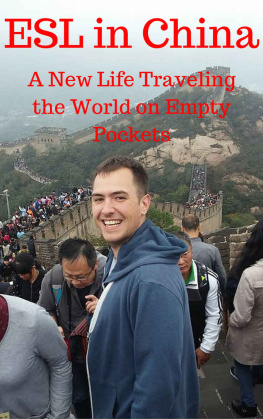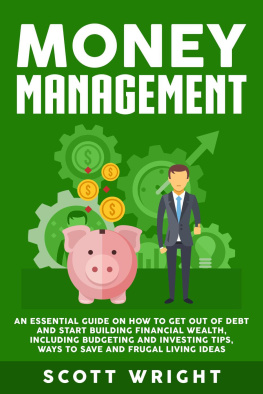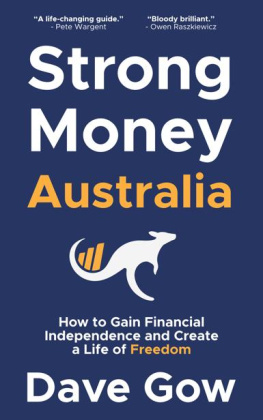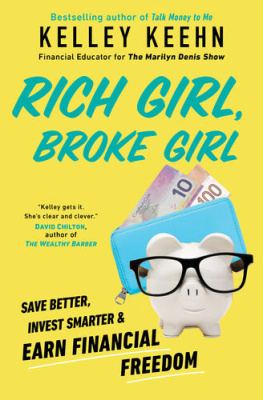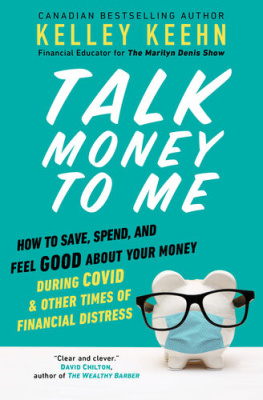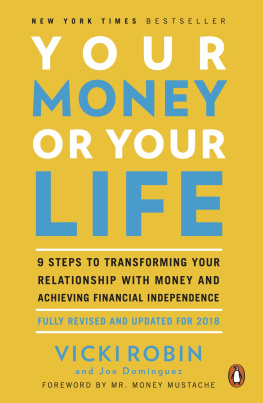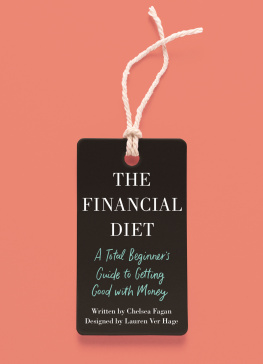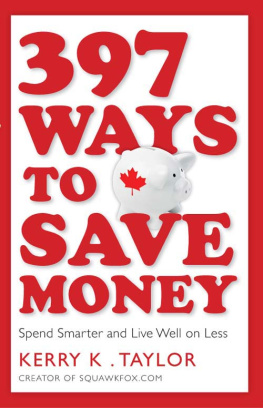Steven Ayy - 40 Ways to Save Money in China: Achieving Financial Independence on a ESL Teacher’s Salary
Here you can read online Steven Ayy - 40 Ways to Save Money in China: Achieving Financial Independence on a ESL Teacher’s Salary full text of the book (entire story) in english for free. Download pdf and epub, get meaning, cover and reviews about this ebook. year: 2017, genre: Home and family. Description of the work, (preface) as well as reviews are available. Best literature library LitArk.com created for fans of good reading and offers a wide selection of genres:
Romance novel
Science fiction
Adventure
Detective
Science
History
Home and family
Prose
Art
Politics
Computer
Non-fiction
Religion
Business
Children
Humor
Choose a favorite category and find really read worthwhile books. Enjoy immersion in the world of imagination, feel the emotions of the characters or learn something new for yourself, make an fascinating discovery.
- Book:40 Ways to Save Money in China: Achieving Financial Independence on a ESL Teacher’s Salary
- Author:
- Genre:
- Year:2017
- Rating:3 / 5
- Favourites:Add to favourites
- Your mark:
- 60
- 1
- 2
- 3
- 4
- 5
40 Ways to Save Money in China: Achieving Financial Independence on a ESL Teacher’s Salary: summary, description and annotation
We offer to read an annotation, description, summary or preface (depends on what the author of the book "40 Ways to Save Money in China: Achieving Financial Independence on a ESL Teacher’s Salary" wrote himself). If you haven't found the necessary information about the book — write in the comments, we will try to find it.
Steven Ayy: author's other books
Who wrote 40 Ways to Save Money in China: Achieving Financial Independence on a ESL Teacher’s Salary? Find out the surname, the name of the author of the book and a list of all author's works by series.
40 Ways to Save Money in China: Achieving Financial Independence on a ESL Teacher’s Salary — read online for free the complete book (whole text) full work
Below is the text of the book, divided by pages. System saving the place of the last page read, allows you to conveniently read the book "40 Ways to Save Money in China: Achieving Financial Independence on a ESL Teacher’s Salary" online for free, without having to search again every time where you left off. Put a bookmark, and you can go to the page where you finished reading at any time.
Font size:
Interval:
Bookmark:
39 Ways to Save Money in China: Achieveing Financial Independence on an ESL Teacher's Salary
By Steven Ayy
2017 Steven Ayy
All Rights Reserved
Introduction
When I moved to China I lived in Beijing for about 3 and a half months. I made a good salary but when I moved to Hohhot I had literally nothing to show for it. I also didn't think this was a problem.
In America I had no concept of saving or future planning (for retirement, vacation or anything except the next phone). I always wondered how certain people seemed to find the money to take a trip to Thailand or Europe yet I was always at square one. I was simply making about 82 small mistakes when it came to saving money.
In the past 2 years my lovely wife has put me on an amazing track to save money. It has led to quite a few calls of cheapskate, I sit out several expensive lunches and dinners with friends and I always have to ask what does it cost? before I commit to anything. All of it has been worth it to have an ever increasing bank account that gives me the freedom to travel as I feel during my breaks.
I am writing this from a private apartment in Chiang Mai, Thailand. I am halfway through my 2 month vacation and even now, as I walk around between the gym and cooking classes, I get a little jealous of the backpackers I see. What are they doing here? I wonder. How do they pay for it? The fact is when you press them almost all of these backpackers, that is to say the (mostly) white, under 28 year olds taking selfies of everything in Southeast Asia or Latin America, are living out their dream that has come from lots of planning and saving. They will spend 3-12 months lugging their life in a suitcase from hostel to hostel, $4 beds with no AC, street food for breakfast, lunch and dinner so they can see the world before they head back home for college or work with a depleted bank account.
Despite having a backpack I am not a backpacker.
In just 28 months I have traveled to Xian, Datong, Beijing, Shanghai, Thailand (three tims), Cambodia (twice), Japan (twice), back home for break, Nicaragua, Dominican Republic, Italy, Switzerland, France and Vietnam (I know I'm forgetting a few) with no end in sight while most penny pinch to meet me halfway. I have 5 months off a year (4 of them paid) and when I travel I live largely in comfort. Private apartments, nice sit down dinners with my wife and drinks at night and when I return home I'll still have a comfortable number on my ATM screen ready for the next excursion (I should really go back to Europe).
Life is most definitely meant to be lived and, no, money isn't everything but money is freedom. Money is freedom to shop where you want, wear what you want, eat what you want, travel where you want and no one can question anything you do because it is with your money.
Living in China will set you up for a middle class lifestyle and the ability to put 60%+ of your salary in the bank every single month. You won't be a millionaire but you will be free.
About the Author
Steven Ayy is an ESL teacher based in Hohhot, China. He recently turned 30 years old at the Full Moon Party in Koh Pahngan Thailand and documents his travels and advice in life and teaching on Youtube as The Culture Bum. He has also written ESL in China: A New Life on Empty Pockets about how to find a job in China teaching ESL.
Financial Indepence/Early Retirement
Financle Independence/Early Retirement (or FI/RE) is about maximizing your savings rate for freedom and, hopefully, early retirement. A third of Americans don't have a single dollar saved for retirement and most don't even have $1,000 of fluid cash in the bank. I used to be one of these people. Home ownership is on the decline, private car ownership as well and more people are living at home at a late age in decades. Despite all this consumption has stayed steady with corporations like Starbucks, Netflix and movie theater chains posting record profits.
This tells me that we do have money but we are simply wasting it.
This book is of course about spending and living in China but we can apply most all of the FI/RE concepts.
I am not perfect by any means and I do spend stupidly from time to time. I pay $11 a month to a sports analyst network, I like a night out from time to time which can easily cost me $50 (which in China is a good deal of money) and I do travel a lot. I also never, ever, ever drink Starbucks, I really would never think of getting another tattoo and I love to ride my bike around town to save on taxis. This book will not hurt any effort to achieve a FI/RE status.
Before we start I thought I would post a little summary of FI/RE. Thank you for reading and I hope this book helps you in your goals.
FI/RE is about:
-Discovering and achieving life goals: What would I do with my life if I didn't have to work for money?"
-Simplifying and redesigning your lifestyle to reduce spending. Your wants and needs aren't written in stone, and less spending is powerful at any income level.
-Working to increase your income and income streams with projects, side-gigs, and additional effort
-Striving to save a large percentage (generally more than 50%) of your income to accelerate achieving FI
-Investing to make your money work for you, and learning to manage/optimize those investments for the unique nature of FI/RE
-Retiring Early
FI/RE is NOT about:
-Gaining wealth for the purpose of excessive consumption
-Taking the slow road, or the traditional road to retirement
Food and night life

Eat like a local (and find your spot)
China has a few tiers of restaurants. These tiers separate price and style of food but also how many people are meant to eat there. I'll simply call them 1 and 2 to be simple but there are a dozen more.
Tier 1 Chinese restaurants look a lot like Chinese restaurants in the US. They are brightly colored on Red and gold, maybe there are statues and dragons out front and inside are fish tanks, dozens of wait staff, sometimes an open kitchen, etc. Far too often I see foreigners flock to these places because they think this is what a Chinese restaurant looks like so this is where I go.
 The problem is these restaurants are designed for large parties of 3 or more. The menus will have an item such as deep fried mushroom or an egg based soup with vegetables for what seems like normal US prices (45-60 RMB or $7-10) but the portions will be at least 4 times what you expected. It is literally impossible to comfortably finish one of these meals on your own. These are traditional Chinese meal types that are meant to be shared around the table for a large group
The problem is these restaurants are designed for large parties of 3 or more. The menus will have an item such as deep fried mushroom or an egg based soup with vegetables for what seems like normal US prices (45-60 RMB or $7-10) but the portions will be at least 4 times what you expected. It is literally impossible to comfortably finish one of these meals on your own. These are traditional Chinese meal types that are meant to be shared around the table for a large group
Instead stick to the tier 2 restaurants. You pass these hole in the wall shacks with menus printed on the wall and a staticky television in the corner at least a dozen times a day and odds are there is one at the bottom of your apartment complex. They will usually specialize in either rice or noodles so make up your mind what sounds good today. Meals are usually less than 14 RMB for a big plate of rice,vegetables and a little meat or similar noodle dishes. This is perfect for a few laowais who don't want to share their meal or just a lonely night between prepping for classes.
The other restaurant type I want to mention would be mix you face places such as Malatang or Dry Pot. This is where you fill up a container with raw produce, noodles and meats from a rack and they cook it in a sauce for you, usually into a thick type of soup. I love these places but don't let your eyes be larger than your stomach when your grabbing your ingredients.
Font size:
Interval:
Bookmark:
Similar books «40 Ways to Save Money in China: Achieving Financial Independence on a ESL Teacher’s Salary»
Look at similar books to 40 Ways to Save Money in China: Achieving Financial Independence on a ESL Teacher’s Salary. We have selected literature similar in name and meaning in the hope of providing readers with more options to find new, interesting, not yet read works.
Discussion, reviews of the book 40 Ways to Save Money in China: Achieving Financial Independence on a ESL Teacher’s Salary and just readers' own opinions. Leave your comments, write what you think about the work, its meaning or the main characters. Specify what exactly you liked and what you didn't like, and why you think so.


